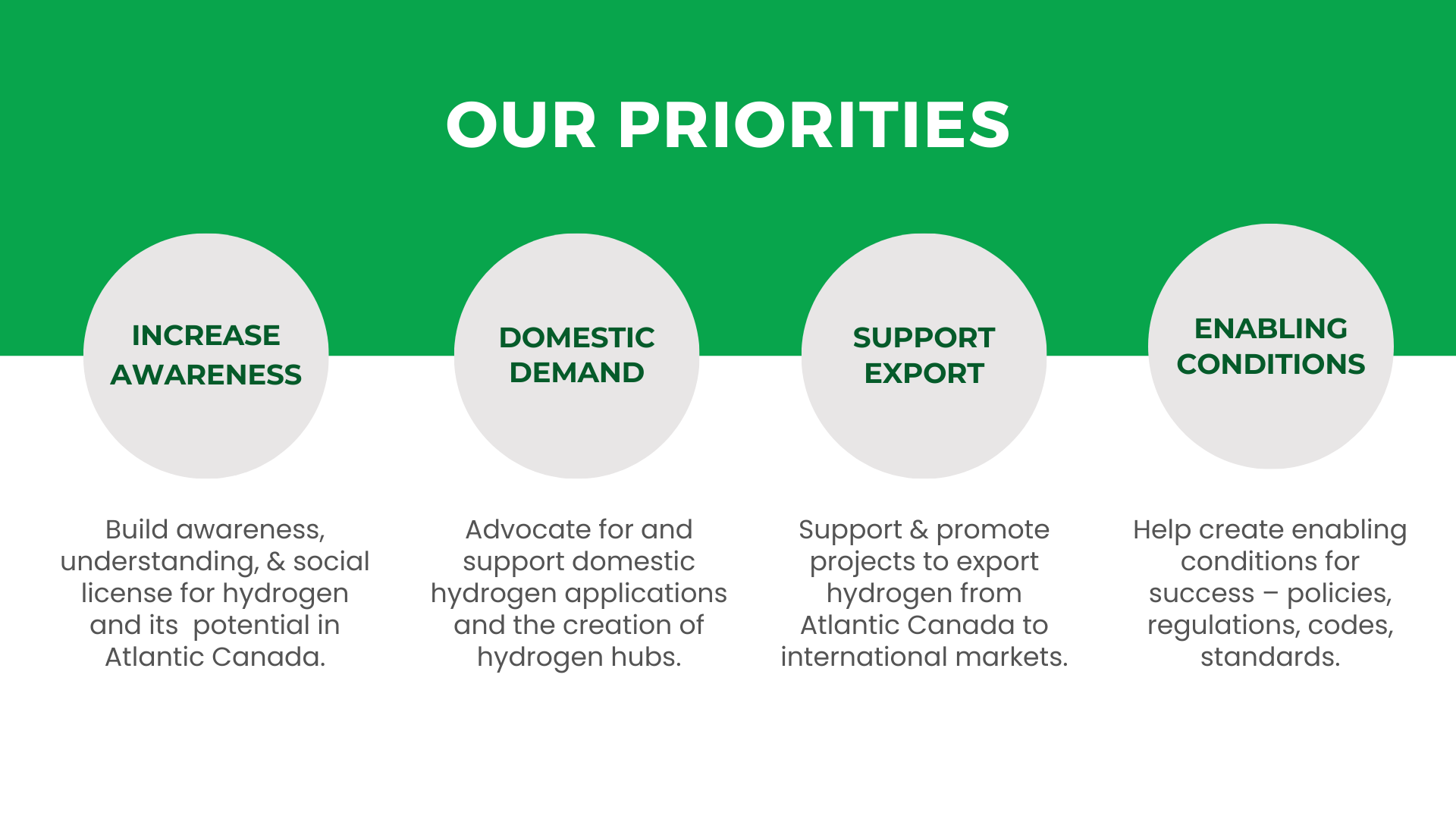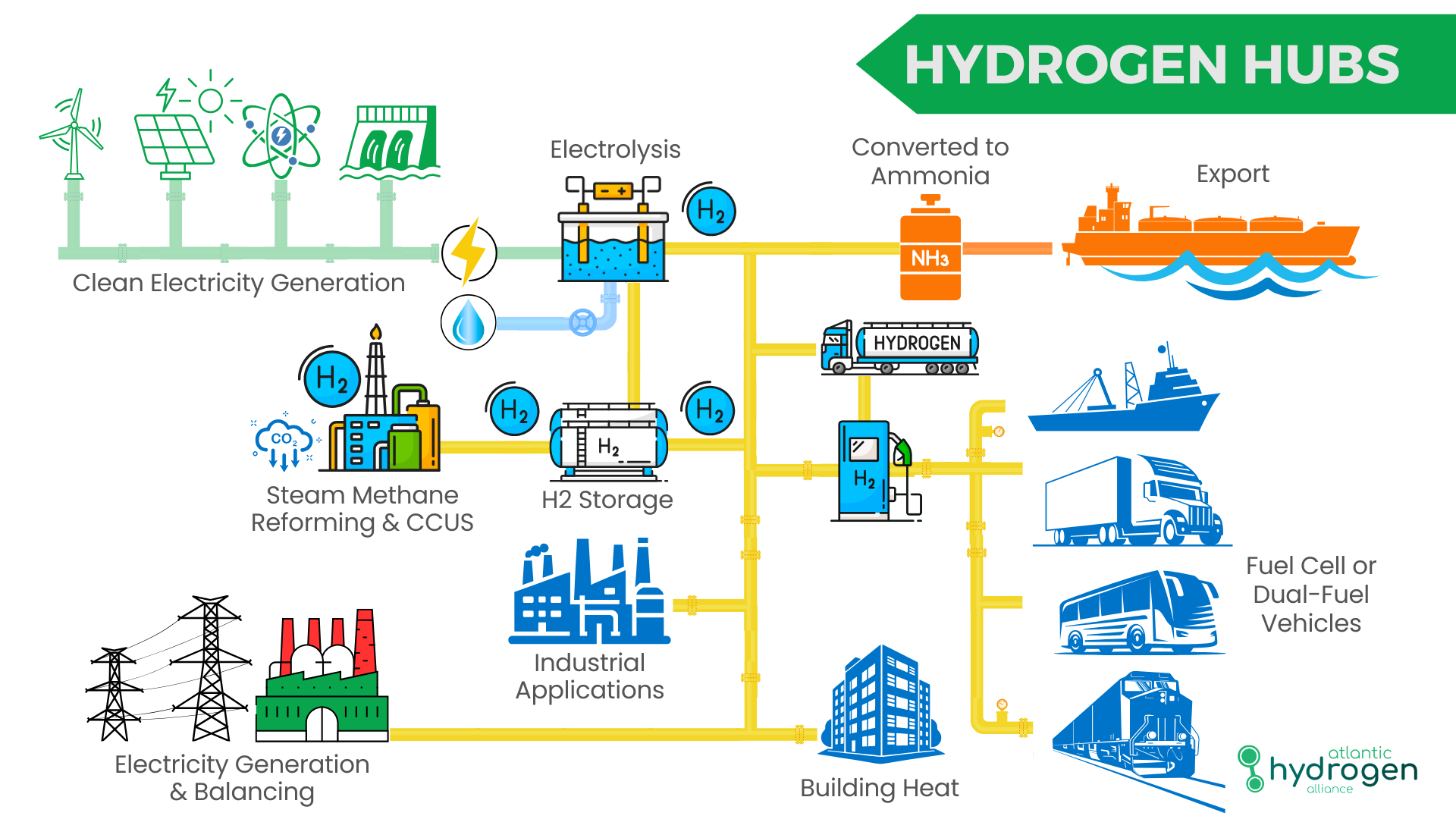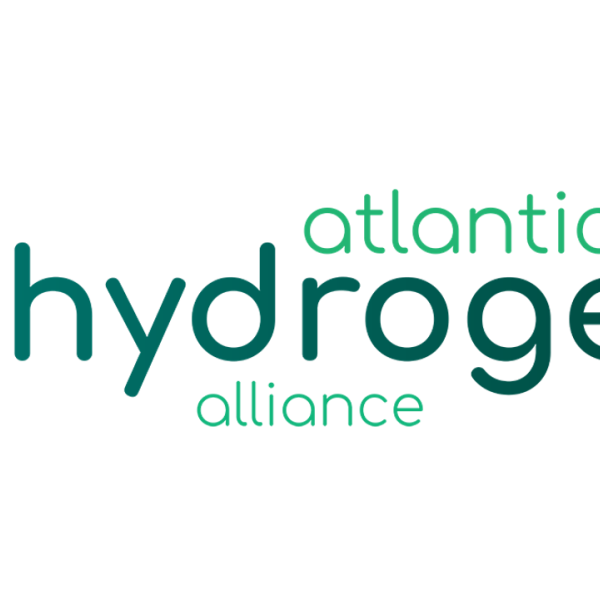Low-carbon hydrogen has tremendous potential in Atlantic Canada to lower GHG emissions and drive economic development. Hydrogen is a promising solution for reducing emissions, especially in energy sectors that are challenging to decarbonize, including heavy transportation, shipping and other marine vessels, and high-temperature industrial processes.
To achieve net-zero emissions, Atlantic Canada will have to decarbonize almost every energy use sector by replacing most fossil fuels with low-carbon energy. In addition to more greener electricity, we’ll need other types of renewable energy that can be produced at large scale, stored, and transported to meet our clean energy needs where, when, and for the end uses that need it.
One of these renewable energy sources will be low-carbon hydrogen and its derivatives like ammonia, methanol, and sustainable aviation fuel. The production of hydrogen, specifically green hydrogen made through electrolysis, can turn green electrons into green molecules, either to use in energy sectors that will be difficult to decarbonize directly with electricity, or as a type of long-duration storage for renewable electricity.
Hydrogen can also help Atlantic Canada become a green energy powerhouse. Due to our region's proximity to Western Europe, green hydrogen can be produced here and exported to meet emerging demand in Europe, especially Germany. Atlantic Canada's excellent onshore and offshore wind resources can be used to generate renewable electricity to produce green hydrogen.

Hydrogen Hubs
A hydrogen hub is a coordinated, synergistic initiative designed to accelerate the development of a regional hydrogen economy by concentrating and connecting the production, distribution, storage, and use of hydrogen to create an economically viable integrated hydrogen value chain.
Hubs accelerate the adoption of hydrogen technologies by creating localized infrastructure and connecting key players across the hydrogen value chain, including hydrogen producers, distributors, and end-users. By strategically locating hydrogen production facilities near end-users, distribution costs are minimized, making hydrogen more affordable and accessible. Hydrogen hubs are crucial for scaling up hydrogen usage and achieving climate goals.
Hydrogen hubs can also be catalysts for innovation and collaboration. Successful hydrogen hubs need strong partnerships and coordination with governments, businesses, utilities, and research institutions, all working towards a common goal.




